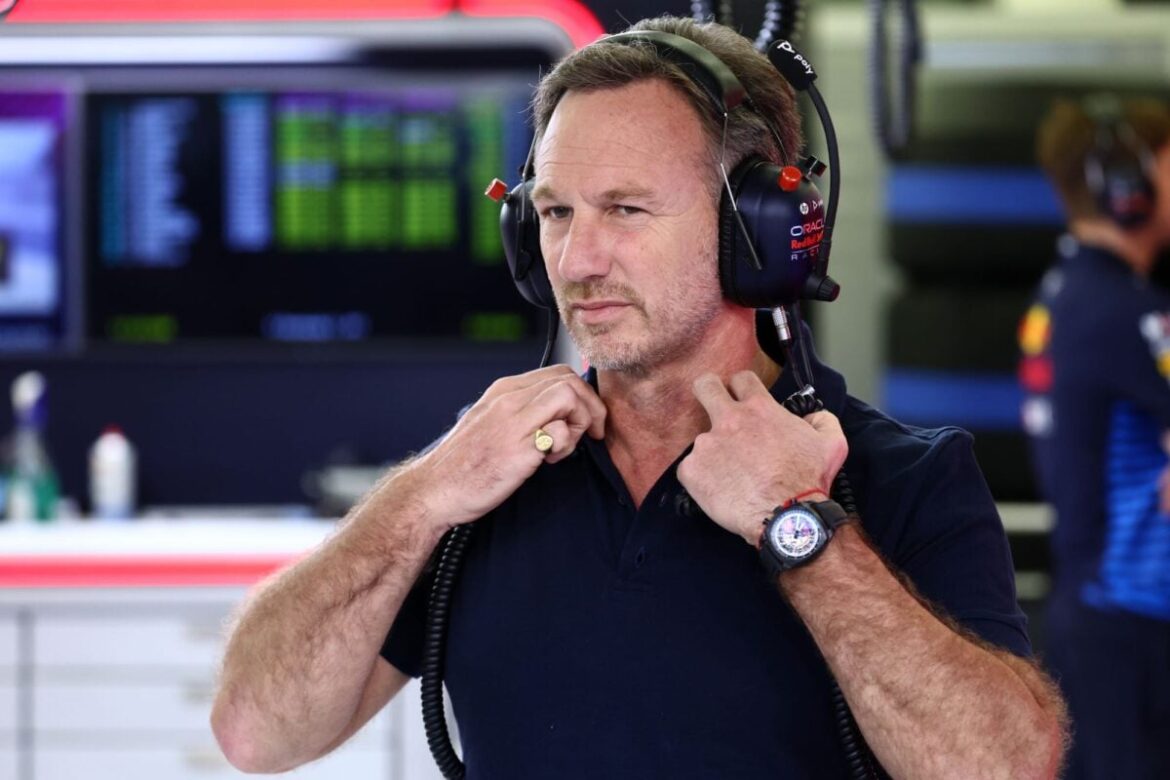Christian Horner’s Departure from Red Bull Racing: A New Chapter in Formula 1
Christian Horner’s exit from Red Bull Racing was officially announced on July 13, marking the conclusion of a two-decade journey with the Formula 1 team. The Companies House, the British entity responsible for company registrations, confirmed the termination of his role as director, following his dismissal from the position of team principal on July 9. Since 2005, when Red Bull acquired Jaguar, Horner had been at the helm of the team, making him the only team principal until his recent replacement by Laurent Mekies. His tenure was highlighted by significant achievements, including six Constructors’ Championships and memorable victories with drivers such as Sebastian Vettel and Max Verstappen. However, his final years were overshadowed by controversies, internal conflicts, and a decline in performance.
The Legacy of Christian Horner
Christian Horner’s journey with Red Bull Racing began in a time of transformation for the team. Under his leadership, Red Bull evolved from a mid-tier competitor to a dominant force in Formula 1. His strategic acumen and ability to attract top talent played a crucial role in this ascent. Horner fostered a culture of excellence and innovation that propelled the team to unprecedented heights. The partnership with Vettel resulted in four consecutive Drivers’ Championships from 2010 to 2013, while Verstappen brought additional glory to the team with his own championship win in 2021.
Despite these successes, Horner’s latter years were not without challenges. The team’s performance began to wane, and internal disputes became public. These issues culminated in an investigation into allegations of inappropriate behavior towards an employee, although the case was eventually dropped. Even with Verstappen securing the Drivers’ Championship in the previous season, Red Bull’s standing in the Constructors’ Championship plummeted to third place in 2025, ending a stronghold that had lasted for two seasons.
Transitioning Leadership
The announcement of Horner’s departure coincided with the appointment of Stefan Salzer as the new director of Red Bull Racing. This leadership change reflects the growing influence of Red Bull GmbH, the parent company of the team. Horner had been in the director role since March 2007, making him one of the longest-serving figures in the sport alongside Helmut Marko. His departure signals a new direction for the team, which aims to regain its status as a top contender in Formula 1.
The transition in leadership is a crucial moment for Red Bull Racing, as it seeks to navigate the competitive landscape of Formula 1. The appointment of Salzer suggests a shift in strategy, potentially focusing on a different approach to team management and performance enhancement.
The Future of Red Bull Racing
As Red Bull Racing moves forward without Horner, the team faces the challenge of re-establishing itself as a leading force in Formula 1. The new leadership under Salzer will need to address the issues that plagued the team in recent seasons. This includes not only improving on-track performance but also fostering a positive team culture that minimizes internal strife.
The Formula 1 landscape is constantly evolving, with teams vying for supremacy. Red Bull Racing must adapt to the changing dynamics, particularly as rivals continue to improve their own strategies and technologies. The team’s future success will depend on its ability to innovate and remain competitive in this fast-paced environment.
Speculations on Horner’s Next Steps
With Horner’s departure from Red Bull, speculation has arisen regarding his next career move. Some industry insiders, including former driver Ralf Schumacher, suggest that Horner may take on a role at Alpine, a team currently undergoing a significant restructuring. This potential move could see him apply his extensive experience and knowledge to a new challenge in the sport.
Alpine’s current struggles present an opportunity for Horner to leverage his expertise in team management and performance optimization. If he does join Alpine, it could mark the beginning of a new chapter in his career and contribute to the revitalization of the team.
The Impact of Change in Formula 1
Horner’s exit from Red Bull Racing highlights the fluidity of leadership within Formula 1 teams. The sport is characterized by its high stakes and intense competition, leading to swift changes in management based on performance outcomes. As teams strive for excellence, the pressure to deliver results can result in significant turnover among key personnel.
This dynamic is not unique to Red Bull; many teams experience similar challenges. The constant quest for improvement means that team principals and directors must remain adaptable and forward-thinking. The landscape of Formula 1 is shaped by the decisions made by these leaders, and their ability to navigate adversity is critical.
Conclusion of an Era
The official announcement of Christian Horner’s departure from Red Bull Racing marks the end of an era defined by remarkable achievements and significant challenges. As the team enters this new phase under the leadership of Stefan Salzer, the focus will be on reclaiming its position at the forefront of Formula 1. The path forward will require strategic planning, innovation, and a commitment to building a strong team culture.
As Horner potentially embarks on a new journey, the impact of his legacy at Red Bull Racing will undoubtedly be felt for years to come. His contributions to the sport and the team will be remembered as part of an extraordinary chapter in Formula 1 history. The coming seasons will reveal how both Red Bull Racing and Horner navigate the ever-changing landscape of motorsport.
